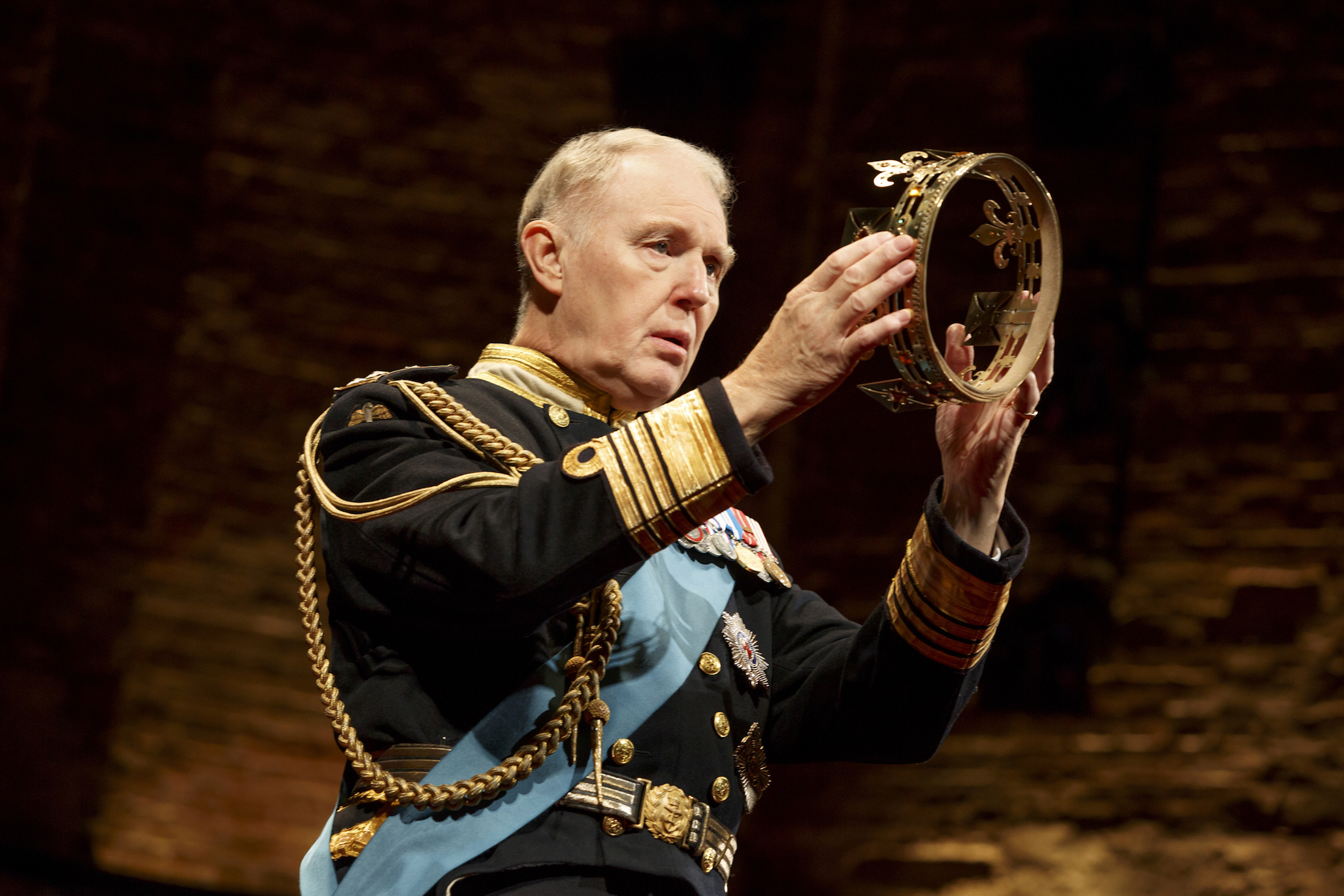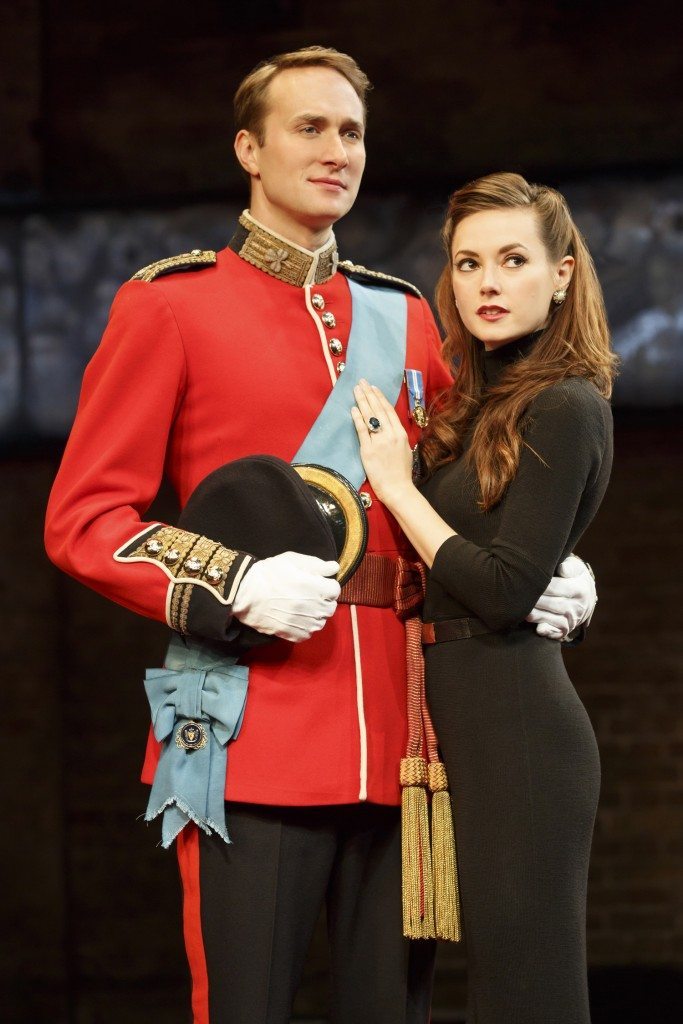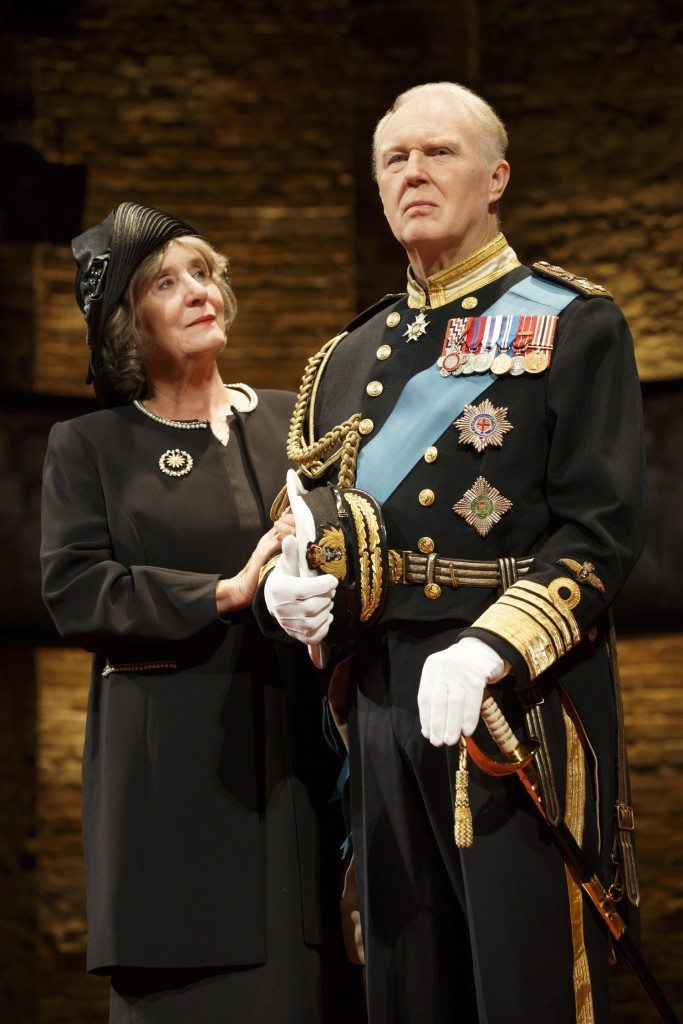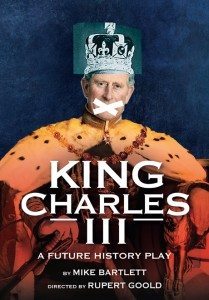
King Charles III Music Box Theatre Production Credits: Rupert Goold (director) Tom Scutt (design) Jon Clark (lighting) Paul Arditti (sound) Other Credits: Written by: Mike Bartlett - See more at: http://www.playbill.com/events/event_detail/king-charles-iii-at-music-box-theatre-346670#sthash.t55FWIA1.dpuf
The Queen is dead, long live the King! “That’s me!” Charles (Tim Pigott-Smith) tells the audience, as shocked as anyone, more than a little nervous, and just a tad thrilled. It’s the near future and yes, Her Majesty has finally passed in this latest play by Mike Bartlett (Chariots of Fire, The Cockfight Play), winner of the 2015 Oliver Award. Sadly (mild spoiler alert!), after such a long wait, Britain’s new ruler miscalculates his function. His actions send the country into a spiral that lets the remaining royals scheme and pontificate on history, ambition, responsibility and legacy—all in blank verse, mostly iambic pentameter, and echoing at least half of the Bard's works.
[caption id="attachment_13697713" align="aligncenter" width="683"] King Charles III Music Box Theatre
Watching actors portray real-life people, famous ones that you know, or at least feel like you know, can be a disquieting experience. This is particularly true when the players are so well cast, like Lydia Wilson who perfectly mimics Kate Middleton’s controlled, precise gracefulness with every flip of her luscious brown hair. Similarly, Oliver Chris so inhabits William’s idiosyncratic manner—handsome and proud but reserved with a certain posture that betrays his gentle nature—that it feels like you’re having a close-up encounter with the man you watched grow up. But it’s Charles, heir-apparent no more, whose emotional depth is most revealed as his station is elevated.
The somewhat reluctant ruler, vacillating between self-doubt and idealism, takes a stand against what he feels is an overreach of government authority. Shocking the prime minister (Adam James), Charles attempts to turn ceremonial power into direct influence, and then true control. (This might sound familiar, possibly even in keeping with the Prince of Wales’s nature, to those who have followed the Black Spider memos.) But good intentions, which generally go nowhere pleasant, lead him to a downfall that’s thoroughly Shakespearean. Pigott-Smith, a classically trained actor, makes the most of every moment, bringing the character to life as both an individual and an archetype: the tragic, power-hungry king, part Hamlet, part Richard III, part King Lear, yet always very much Charles.
[caption id="attachment_13697715" align="aligncenter" width="683"] King Charles III Music Box Theatre
He is not the only one. Kate and William make for wonderfully scheming, even sympathetic versions of the Macbeths. Harry rolls onto the stage with an entourage that might as well be the listed as “the Montague boys” on the program, though their Falstaffian exuberance should be a little more joyful than it is. This might be because the Harry character, more than any other, is furthest from the actual man. “McDonald’s!” he exclaims, thrilled by a taste of regular life. (“It’s really not fair,” my theater companion, a Welsh anti-royalist, commented. “Whatever else you want to say, Diana made sure they were down to earth! He’s been in the army, after all!” she continued, surprised by her own sympathy.)

King Charles III
Like the rest of the audience, Brits and Americans alike, she felt closer to these people than ever. Philosophical debates, politics and rich language aside, that’s the real takeaway of King Charles III. The intimacy it creates supersedes even its intelligence and ambition. Granted, it’s a construction, but even so, hearing the innermost truths of those who’ve lived in public as privately as possible—it’s something every royal fan dreams of: having an audience at Buckingham Palace. Their thoughts and desires and insecurities laid bare with monologues that break down the fourth wall and bypass their sturdy defenses—from the public, from the press—leaving them as vulnerable and open to us as any, well, commoner.
King Charles III is currently playing at the Music Box Theatre. For tickets and more information, click here.





Comments